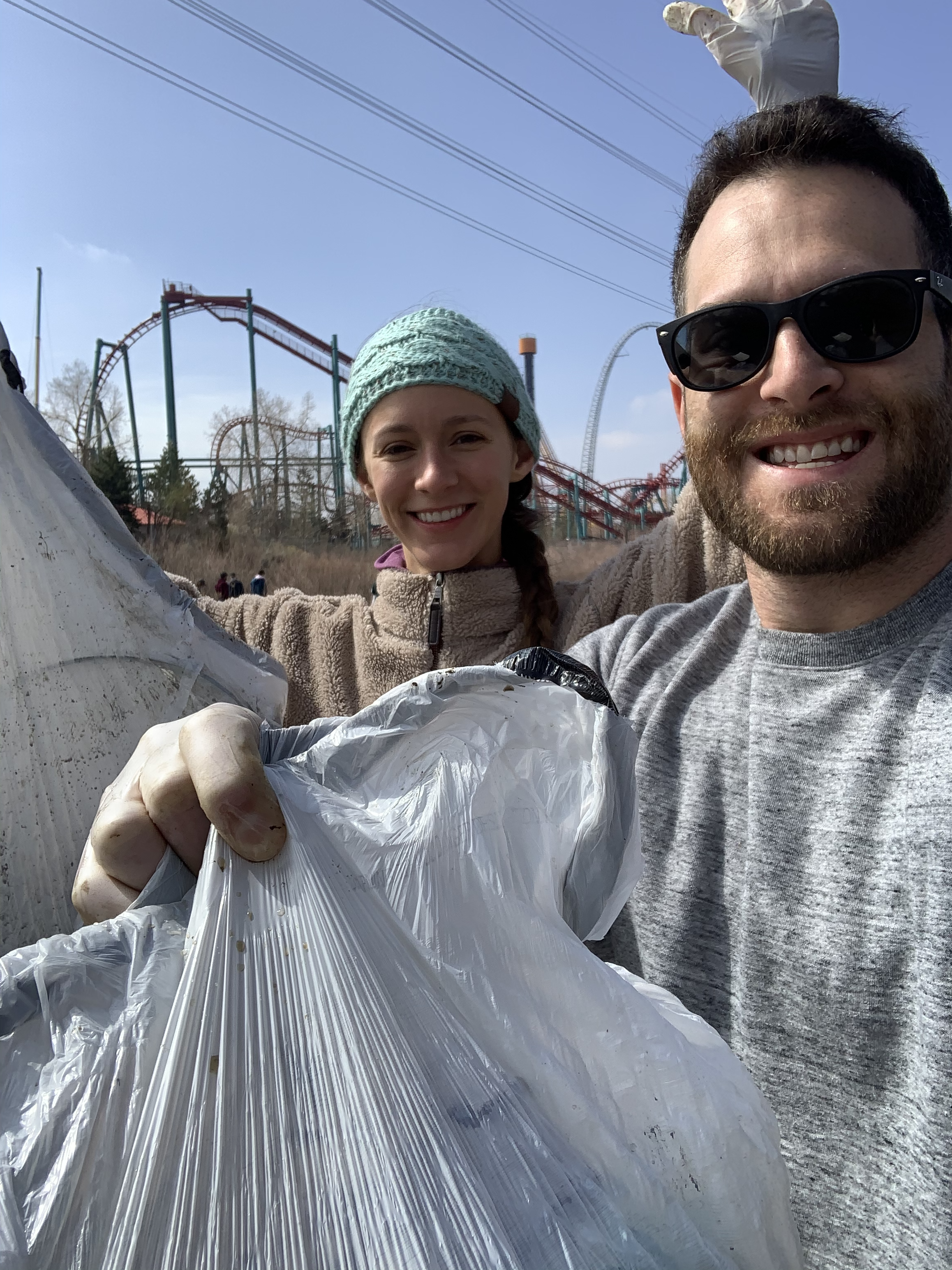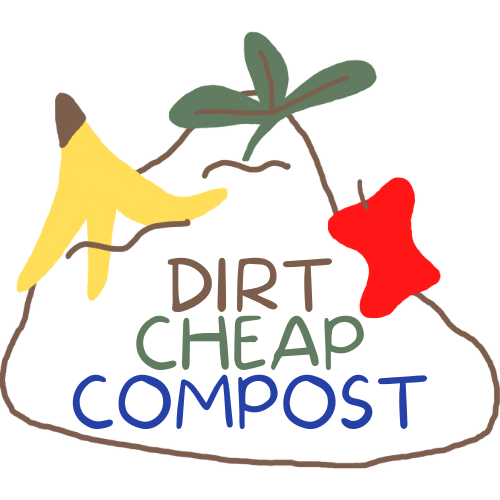FAQs
Why aren't you taking on new customers?
Dirt Cheap Compost is proud to share that we have merged operations with Compost Colorado, effective as of January 2025.
After two years operating DCC, by the end of 2024 our service had grown to hundreds of homes, and we began to face logistics hurdles beyond what we felt we could reasonably overcome with just a spare time passion project. Rather than wait it out and inevitably drop the ball for our members, we felt it was responsible to secure the W for the environment, and pass off our routes to a more established company with more sophisticated services. We diverted an estimated 100,000+ lbs of food waste from landfills in just two years, and we're very proud that the vast majority of our members have chosen to continue composting with CoCo.
We've known CoCo and its founder, Vann, for a number of years even before starting DCC. We respect what they've built, and we're grateful to contribute to the biggest (and most apt) name in Colorado composting! Join Compost Colorado today.
What is composting?
Composting is the process of taking wasted food and turning it into compost (the end product), which is a great additive to indoor and outdoor soils.
When food waste is gathered into a pile in the yard or sent to an industrial composting facility the dense pile of food waste begins to generate heat suitable for microorganisms to live in. Over 1-3 months the microorganisms break down the organic waste into pure nutrients, or compost, and when mixed into regular soil provides a boost of extremely rich nutrients!
Why is it important to compost?
There are several reasons why composting is important. For one, it saves food from rotting in landfills. Food is meant to decompose and will do so no matter where it is. But when decomposition happens in a landfill it is surrounded by plastics, toxins, and other inorganic (non-living) compounds. So the essential microorganisms that break organic materials down do not live there, thus, the food waste rots instead of properly decomposing. When food rots it actually releases methane, an incredibly harmful Green House Gas (GHG), into the landfill, creating a toxic environment.
Another reason composting is important is it brings nutrients back into soils that are depleted. If you think about nature that is untouched by humans, it goes through a natural cycle of decomposition. Think of a fruiting tree. Every year the leaves and fruits fall off the tree and onto the ground at the base of the tree. Naturally, the leaves and fallen fruits will decompose and the soil is replenished with the nutrients that were contained in the leaves and fruits. But when we remove the leaves and fruits, the soil around the tree is not being replenished, but it still needs nutrients in order to feed the tree and grow the fruit. The same goes for any agricultural crops and gardens.
So composting is important because when wasted food is disposed of correctly it can decompose, which reduces the amount of methane being released by food waste, and instead brings nutrients into soil!
What are the DOs and DON'Ts of my Dirt Cheap Compost bin? What can I compost?
Since we bring your wasted food to an industrial composting facility we can accept a lot more items than an at home compost could.
- We DO accept: food scraps and yard clippings. So bones, meats, seafood, vegetables, and fruits are a-ok. Dead flowers and gardening waste are also great!
- We do NOT accept: Non-food items like paper, paper towels, coffee filters, napkins, tissues, "compostable" cups or utensils, plastics, metals, fruit stickers, mail, cardboard, animal or human waste.
What type of bags are compost safe with DCC?
We only accept bags with the BPI (Biodegradable Products Institute) Certification and the CMA (Compost Manufacturing Alliance) Certification as well.
The 7 bag brands we accept are: WorldCentric (conveniently sold at Sprouts!), BioBag, EcoSafe, NaturBag, Unni, Biosak, or Open Nature.
New DCC members will receive their first 25 bags (about a month or two's worth) for free along with their compost bin the first Wednesday after signup!
How often does DCC pick up my compost?
Once a week, every week, on the same day. (Usually Wednesday.)
Can I pause my pickup service?
Yes, if you need to go out of town we can pause your service and resume it when you return - just email us to let us know when you will be out of town and do not need service. Your card will still be charged monthly automatically on your charge date unless you pause service for at least a full 30 days (we unfortunately cannot prorate weeks).
Why do you call it "composting" if compost is the end product?
Calling your wasted food “compost” is easier for people to understand as it is the generic term people use to refer to the whole process. The term compost has a literal meaning and a figurative one. So feel free to call it wasted food, as we often do, but we’re still going to call it compost too.
Can I compost at home instead?
If you have a backyard or shared yard space you can create your own at home compost pile. This is not something we teach but is feasible to learn on your own. If you would like to compost but want a hassle free experience or want to compost without a yard then our home pick up composting service is made for you. By sending your kitchen scraps away with us you will reduce your GHG emissions and do what's best for our shared future and your local, national, and global communities. All you have to do is bag your kitchen scraps each day. We'll take care of all the hard stuff.
What services do you offer?
We offer weekly at home compost pickup services. Just fill up your bags in the kitchen during your normal routine, and tie them up and put them in your bin at your front door – we'll swing by each week to empty your bin for you and drop off your food scraps at the local industrial composting center. If you live in an apartment and want to compost then you can keep your bin inside your kitchen and use a larger sized composting bag each week instead of several smaller ones.
How does your service work?
After you sign up, we will drop off a secure, sealable compost bin with an animal-proof / odor-locking lid to your home, plus your first month of compostable bags – our treat! Fill those bags with compostable materials like kitchen scraps throughout the week; when each bag is full, tie it up and put it in the bin at your front door. Each week on the same day, we'll swing by and empty your bin, and drop off your compost at our industrial composting partner.
What is the cost of your service?
Our weekly pickup service costs $29 per month, per household.
Do you sell or give away finished compost?
No, as of now (2024) we don't sell or provide finished compost. We are simply a food waste removal service for residences looking for a low-cost way to lower their greenhouse footprint. In the future, perhaps!
What areas do you serve?
We currently serve homes west of Denver in the Arvada, Wheat Ridge, and Lakewood, and Golden areas (including surrounding neighborhoods like Edgewater, Lakeside, Applewood, etc.). We are members of the Wheat Ridge Business Association, Good Business Colorado, and are very active in our community!
What do you do with the compost after it's picked up?
The compost is taken to our partner industrial composting facility, where it's turned into rich, nutrient-filled soil that can be used for gardening and farming.
Why should I choose Dirt Cheap Compost over other composting services?
- Price. If you find a better monthly price than $29, email it to us, and we'll match it. We've built out an extremely lean and efficient business model that allows us to operate on razor-thin margins, which increases the accessibility of a sustainable practice like composting to more households. We even saved money by doing our logo and website ourselves instead of paying someone (can you tell?).
- First month's bags for free. We don't believe in making you run errands to get started.
- Local Wheat Ridge small business, family owned and operated.
- Easily accessible – text us at 303-500-7030 anytime, or email hi@dirtcheapcompost.com.
How can I sign up?
You can sign up right here!
Is composting really that beneficial to the environment?
Yes, composting is one of the most impactful ways to reduce landfill waste and the methane released in landfills – it reduces food greenhouse emissions by about 50%! Composting returns valuable nutrients to the soil, and can offset as much as 975 kg of CO2 per person per year! (That's the carbon equivalent of planting 20 new adult trees, every year!)
Do you provide the compost bin or do I need to purchase my own?
Yes, we drop off an easy-to-use, wide-mouth, animal-secure, leak-proof, aesthetically pleasing compost bin as part of your membership :) there's no need for you to purchase your own. We also provide 1 month's worth of compostable kitchen scrap bags!
How do I prepare my compost for pickup?
Just make sure your compost bags are all tied up and in the provided bin on your pickup day. We'll swing by and handle the rest!
What do I do if my bin is damaged or goes missing?
If your bin is damaged or missing, please contact our customer service team and we will arrange for a replacement at a $30 cost, or you can get your own bin at your convenience. (For your own safety and sanity, please be sure to get a bin with an animal-proof lid that can hold about a week's worth of compost, or 5 gallons for the average family.)
What day of the week will my compost be picked up?
Generally the pickup day is Wednesday, but your pickup day may vary depending on your address. If you have an issues or need assistance please email us at hi@dirtcheapcompost.com to discuss your needs.
What if I produce more compost than the bin can hold?
If you regularly produce more compost than the bin can hold, contact us to discuss potential solutions, which could include providing a larger bin, an additional bin, or arranging more frequent pickups. Usually you can leave your extra compost by the bin (in a tied compostable bag) and we'll take it without any fuss.
Is your service available year-round?
Yes, our compost pickup service is available year-round, regardless of the season. For driver safety during inclement weather, we may email you to move your pickup by a day or two.
Do you offer ad-hoc pickups of yard waste, or a location to dump yard compost?
No, we only offer weekly home pickups for food waste. We don't have a location for you to drop off soil, yard waste, or any large bulk dumps. Try A1 Organics!
Do I need to rinse my bin after it's been emptied?
While it's not required per se, rinsing your bin monthly with water and letting it sun-dry can help reduce odors and keep your bin clean. It will also keep your HOA off your back.
Who is the crackerjack team behind DCC?
Co-founders and operators Madison and Colin are local Wheat Ridge residents. You may know them from around town, as Colin is also Founder and CEO of local sustainable bedding brand Sheets & Giggles (featured on Good Morning America for Earth Day 2023!), and Madison is a former eco-friendly real estate agent and host of the "Eco-Friendly Homes" podcast, currently working as a field archaeologist!
Read more about the dynamic duo!

